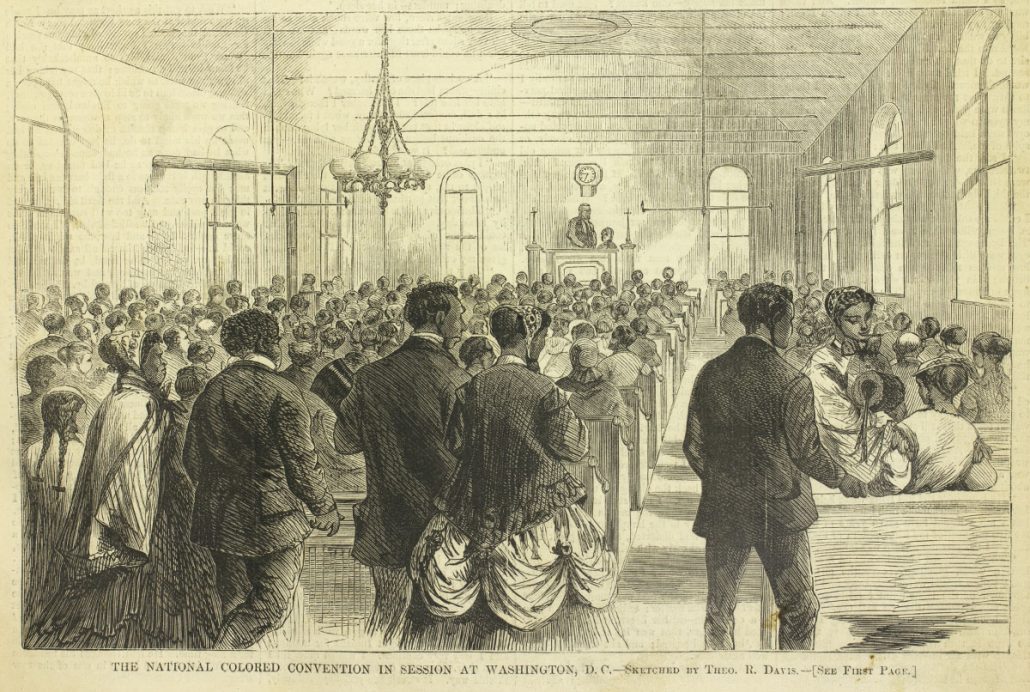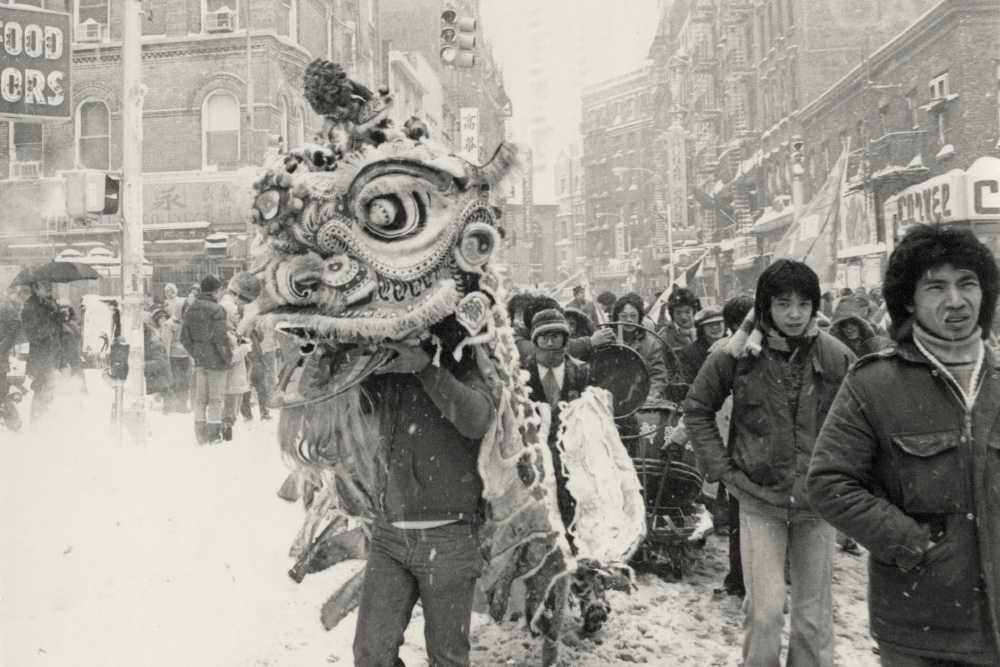
NHPRC News
June 2024
Inside the Commission
National Archives Awards $4 Million in Grants
Dr. Colleen Shogan, Archivist of the United States, approved 32 awards totaling $4,070,583 for historical records projects in 20 states. The National Archives grants program is carried out through the National Historical Publications and Records Commission (NHPRC). A complete list of new grants is available online at https://www.archives.gov/nhprc/awards/awards-5-24
The NHPRC also approved two new funding opportunities designed to meet pressing fieldwide needs: Capacity Building for Historically Black Colleges and Universities Archives and Discovery and Access to Congressional Records Collections.
Grants went to 17 edition projects to publish the papers of key figures such as George Washington and Frederick Douglass, as well as a first-time NHPRC award to Pennsylvania State University to support the Colored Conventions project to collect, catalog, and transcribe scattered records collections of the 79 Colored Conventions held in the Civil War era, the nation's largest movement for Black civil rights during the 19th century.
Four projects will enhance Public Engagement with historical records:
- A partnership of the North Carolina American Indian Heritage Commission and the state archives to publish online at least 144 oral histories and train American Indian youth as oral historians
- Upstander Project, Inc. in Boston to expand access to historical records relating to Indigenous peoples from the 16th through the 19th centuries held at the American Antiquarian Society and to create new history curricula.
- South Asian American Digital Archive for a nationwide participatory archiving initiative in which community members will collect, preserve, digitize, transcribe, and share 1,500 archival items online to shed light on the diverse experiences of South Asian Americans.
- Vanport Mosaic to use audio and video histories and other materials to create an augmented reality walking tour of the lost city of Vanport, Oregon, destroyed in a 1948 flood.
An additional 11 archival projects will enhance access to collections documenting Alabama’s coal and iron labor history, description of 80 collections related to enslavement in Georgia, the records of African American masons in Louisiana, the photography work of Emile Bocian who documented New York’s Chinatown in the 1970s and 1980s, the records of Automobile Quarterly documenting classic American automobiles, aviation manufacturing records at the San Diego Air and Space Museum, records related to the landmark 1974 Bronson v. Cincinnati Board of Education desegregation case, New York City’s Commission on Human Rights (1945-1976), employee records from the Baltimore & Ohio Railroad Relief Department, the records (1870-2015) of the Great Plains Black History Museum, and over 1,200 whaling logbooks and journals (1669-1977) at the New Bedford Whaling Museum.
New Programs for HBCUs and Congressional Records
At its May 2024 meeting, the NHPRC also approved two new funding opportunities designed to meet pressing fieldwide needs:
Capacity Building for Historically Black Colleges and Universities Archives to address challenges in the processing, long-term preservation, discovery, access, and research use of archival collections at HBCUs. We seek applications from collaborative teams involving HBCU-based repositories, libraries, research centers, and/or other archival or community-based archival entities. Awards may range from $150,000 to $250,000. In FY 2025, we anticipate awarding up to six grants for up to $1,000,000. Draft applications are due August 15, 2024, and final applications are due November 7, 2024.
Discovery and Access to Congressional Records Collections for collaborative teams of archivists and other practitioners to develop and promote models for addressing key challenges in the processing, long-term preservation, discovery, access, and research use of Congressional Records collections. Awards may range from $100,000 to $350,000. We expect to make up to seven grants in this category for up to $1,000,000. Draft applications are due August 15, 2024, and final applications are due November 7, 2024.
Dr. Meredith R. Evans Named to Commission
We are pleased to welcome Dr. Meredith R. Evans to the Commission, as an appointee of President Joe Biden.
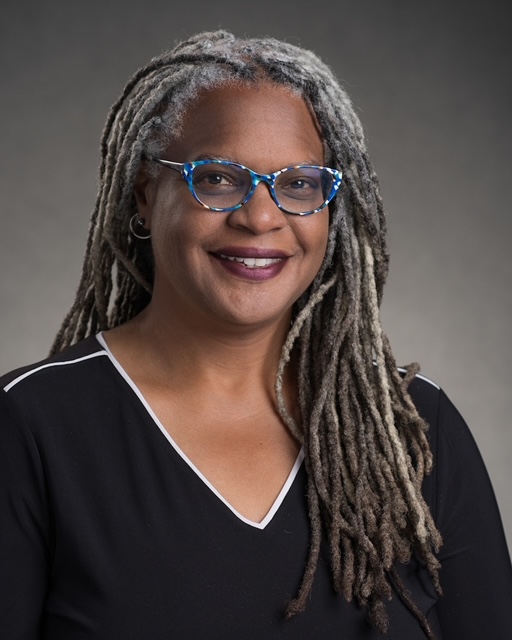 Meredith Evans is the 74th President of the Society of American Archivists and has held managerial roles in archives, special collections and exhibit spaces at Washington University in St. Louis, UNC Charlotte and George Washington University. She is currently the appointed director of the Jimmy Carter Presidential Library and Museum, administered by the U.S. National Archives and Records Administration.
Meredith Evans is the 74th President of the Society of American Archivists and has held managerial roles in archives, special collections and exhibit spaces at Washington University in St. Louis, UNC Charlotte and George Washington University. She is currently the appointed director of the Jimmy Carter Presidential Library and Museum, administered by the U.S. National Archives and Records Administration.
Dr. Evans has over 25 years of successful management and experience, mostly in cultural heritage organizations. She has written on the role and value of archives, libraries and museums as advocacy organizations that support and document social change. She deeply believes in supporting community collaborations to promote civic engagement and the preservation of collective memory. She helps people see their role in the larger social fabric around them. Evans earned a master's degree in library science from Clark Atlanta University, a master's degree in public history from North Carolina State University and a doctorate from the University of North Carolina at Chapel Hill.
NHPRC Adds Two Staff
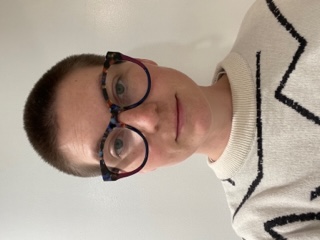
Alex Wilson named Management & Program Analyst
Alex Wilson (they/them) is a Management and Program Analyst, coming to the NHPRC with eight years of development experience--from fundraising to grants management. They most recently served as the Senior Development Manager for the German Marshall Fund of the United States where they designed and implemented internal fundraising and grants management policies and procedures to improve organizational capacity. Alex received their BA from the University of Toronto and their JD from American University, Washington College of Law.
Jacob Lusk named Director for the States Program
 Jacob Lusk comes to NHPRC from the National Endowment for the Humanities, where he managed a portfolio of research fellowships for five years. Prior to that, he worked in the textual reference division at the National Archives at College Park. Jacob holds a BA in anthropology from the University of North Carolina, Chapel Hill and an MA in American studies from UMass Boston. He is excited to oversee the State Board Programming Grants program and looks forward to working with archival communities across the nation.
Jacob Lusk comes to NHPRC from the National Endowment for the Humanities, where he managed a portfolio of research fellowships for five years. Prior to that, he worked in the textual reference division at the National Archives at College Park. Jacob holds a BA in anthropology from the University of North Carolina, Chapel Hill and an MA in American studies from UMass Boston. He is excited to oversee the State Board Programming Grants program and looks forward to working with archival communities across the nation.
Founders Online Turns 13
It's hard to believe that Founders Online is a teenager already. Here's your opportunity to read the equivalent of their texts, DMs, email, and blog posts and get everything from the latest gossip to their deepest thoughts, thanks to the NHPRC.
On June 13, 2011, the National Archives in partnership with the University of Virginia Press launched the Founders Online website providing free access to a digitized collection representing the papers of seven of the most influential figures in the founding of the United States.
Among the 185,000 documents available through the website's searchable database are the papers of John Adams, Benjamin Franklin, Alexander Hamilton, John Jay, Thomas Jefferson, James Madison, and George Washington. The database also includes correspondence between these Founders and hundreds of other figures.
The site is the result of a 75-year effort by dedicated scholars to locate, transcribe, annotate, and digitize 18th and 19th century documents held by archives worldwide. From these works, hundreds of individual volumes have been published that can also be accessed.
The collection is derived from the letterpress editions of the Founders' original papers, which were drawn from the following sources::
- John Adams ― Massachusetts Historical Society and Harvard University Press
- Benjamin Franklin ― Yale University Press
- Alexander Hamilton ― Columbia University Press
- Thomas Jefferson ― Princeton University Press and the Thomas Jefferson Foundation at Monticello
- John Jay, James Madison, and George Washington ― University of Virginia Press
Eventually, the website's collection is expected to exceed 200,000 documents. Millions have dropped by to see the primary sources for themselves. Start reading at https://founders.archives.gov/
Grant Deadlines
Important Tip ⇒ You should contact us early on in the application process to discuss your project. We encourage you to provide a draft, which the program director will review and offer advice for revision before the final deadline.
Access to Historical Records: Archival Projects
- Draft Deadline: August 15, 2024
- Final Deadline: November 7, 2024
Capacity Building for Historically Black Colleges and Universities Archives
- Draft Deadline: August 15, 2024
- Final Deadline: November 7, 2024
Discovery and Access to Congressional Records Collections
- Draft Deadline: August 15, 2024
- Final Deadline: November 7, 2024/li>
Publishing Historical Documents in Collaborative Editions
- Draft Deadline: August 15, 2024
- Final Deadline: November 7, 2024
News from the Field
Uncovering Black Voices in Reconstruction Mississippi
The new issue of the Journal of the Civil War Era has a thought-provoking article on "Uncovering Black Voices in Civil War Era Digital Archives: The Civil War & Reconstruction Governors of Mississippi Project." Author Lindsey R. Peterson discusses the wide scope of the project:
"The CWRGM collection is far less about Mississippi’s governors than readers may assume. Rather, it allows us to listen to the concerns, frustrations, and fears of thousands during one of the most pivotal periods in U.S. history. While the majority of the authors are white men, the collection is rich with African American history. For instance, we can see Lambert Moore, a freedman from Holly Springs, challenge a tax on the earnings he made from hiring himself out during the war. Users can read Albert Snowden’s pleas to Governor James Lusk Alcorn for protection from the white supremacist violence erupting in the state in the early 1870s. Letters about Permilia Finley, the matron of Vicksburg’s City Hospital, highlight challenges to her leadership by disgruntled whites in 1871. Others, like a letter supporting the pardon of Franklin Dunn, a white man who was convicted of killing the white employer of a biracial freedwoman named Eliza Row, reveal postwar tensions over Black women’s labor."
Peterson goes on to explain how the project uses nested tags and faceted searches to give users the greatest possible return when searching the database of over 11,500 letters, telegrams, and petitions sent to the state’s governors between 1859–1882 (with a goal of 20,000 records). The collection is used by genealogists, educators, students, scholars, and others at the site.
The NHPRC is delighted to see such in-depth analysis by one of our supported projects. You can read the whole article at https://www.journalofthecivilwarera.org/muster/ and learn more about the CWRGM project at https://cwrgm.org/
Digitizing Moloka’i
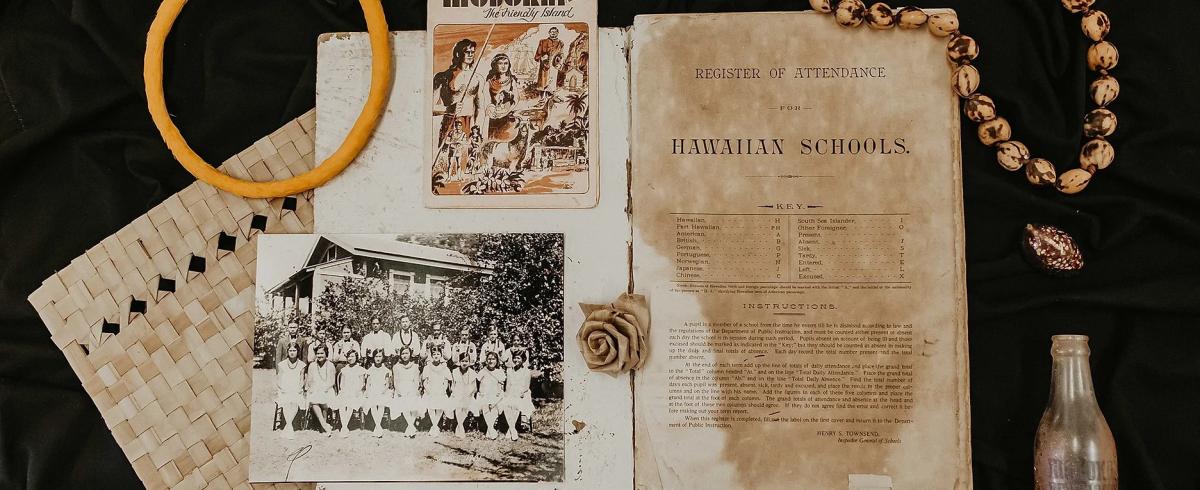 An NHPRC Archives Collaborative grant to the Ka Ipu Makani Cultural Heritage Center in Kaunakakai, Hawaii helped archivists there create the Molokaʻi Community Repository, including digitizing 12,000 records from collaborating repositories and community collections, on the small rural island of Molokaʻi.
An NHPRC Archives Collaborative grant to the Ka Ipu Makani Cultural Heritage Center in Kaunakakai, Hawaii helped archivists there create the Molokaʻi Community Repository, including digitizing 12,000 records from collaborating repositories and community collections, on the small rural island of Molokaʻi.
This one-of-a-kind online platform, accessible at https://www.moaemolokai.com/ , serves as a valuable resource for Molokaʻi community members and researchers alike, providing unprecedented access to historical and cultural materials.
Congratulations and Aloha!
Early Photoshop
 Th
Th ese portraits depict Henry C. Wischmeyer, Jr. (1872-1959) and his sister Olga Wilhemine Wischmeyer (1869-1948) of Dover Township, Ohio, Henry was a model boatbuilder, and Olga worked at her father’s hotel as a cook and was a member of the Library and Museum Committee for the City of Bay Village, Ohio. Both portraits feature watercolor over a photographic print. The Bay Village Historical Society has recently been named as a recipient of the 2023 Ohio Historical Records Advisory Board Achievement Award.
ese portraits depict Henry C. Wischmeyer, Jr. (1872-1959) and his sister Olga Wilhemine Wischmeyer (1869-1948) of Dover Township, Ohio, Henry was a model boatbuilder, and Olga worked at her father’s hotel as a cook and was a member of the Library and Museum Committee for the City of Bay Village, Ohio. Both portraits feature watercolor over a photographic print. The Bay Village Historical Society has recently been named as a recipient of the 2023 Ohio Historical Records Advisory Board Achievement Award.
In 2019, the Bay Village Historical Society began a project to conserve and increase access to the portraits and photographs in Rose Hill Museum. Working with the Cleveland Public Library to create high-resolution tiffs, the Cleveland Institute of Art then produced an archival copy of each portrait.
For their efforts, the Bay Village Historical Society received the 2023 Ohio Historical Records Advisory Board Achievement Award. The state board is supported by a grant from the National Archives through the NHPRC.
You can take a look at the entire collection at https://www.bayhistorical.com/portrait-gallery/
Women of West Virginia
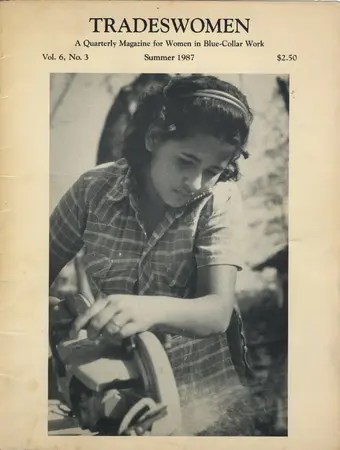 Established in 2017, the West Virginia Feminist Activist Collection is part of the West Virginia & Regional History Center Special Binghamton University Libraries' Special Collections. The mission of the WVRHC is to acquire, provide access to, and preserve information resources which elucidate the history and culture of West Virginia and the central Appalachian region.
Established in 2017, the West Virginia Feminist Activist Collection is part of the West Virginia & Regional History Center Special Binghamton University Libraries' Special Collections. The mission of the WVRHC is to acquire, provide access to, and preserve information resources which elucidate the history and culture of West Virginia and the central Appalachian region.
Among the collections are the papers of playwrights, novelists, and historians; the records of the Artemis Sisters Collective Collection; the Women’s Information Center; the university’s Council for Women’s Concerns and the Women and Gender Studies; and the papers of Linda Cooper, a leader for environmental justice who helped create the Canaan Valley National Wildlife Refuge; and others.
You can read more at https://wvrhc.lib.wvu.edu/collections/west-virginia-feminist-activist-collection
The Dolls Test
On May 17, 1954, the U.S. Supreme Court ruled unanimously that segregation in public schools was inherently unequal and unconstitutional in the landmark Brown v. Board of Education of Topeka decision. The Supreme Court cited the work of Kenneth and Mamie Clark, two psychologists who designed and conducted a series of experiments known colloquially as “the dolls test” to study the insidious effects of segregation on children.
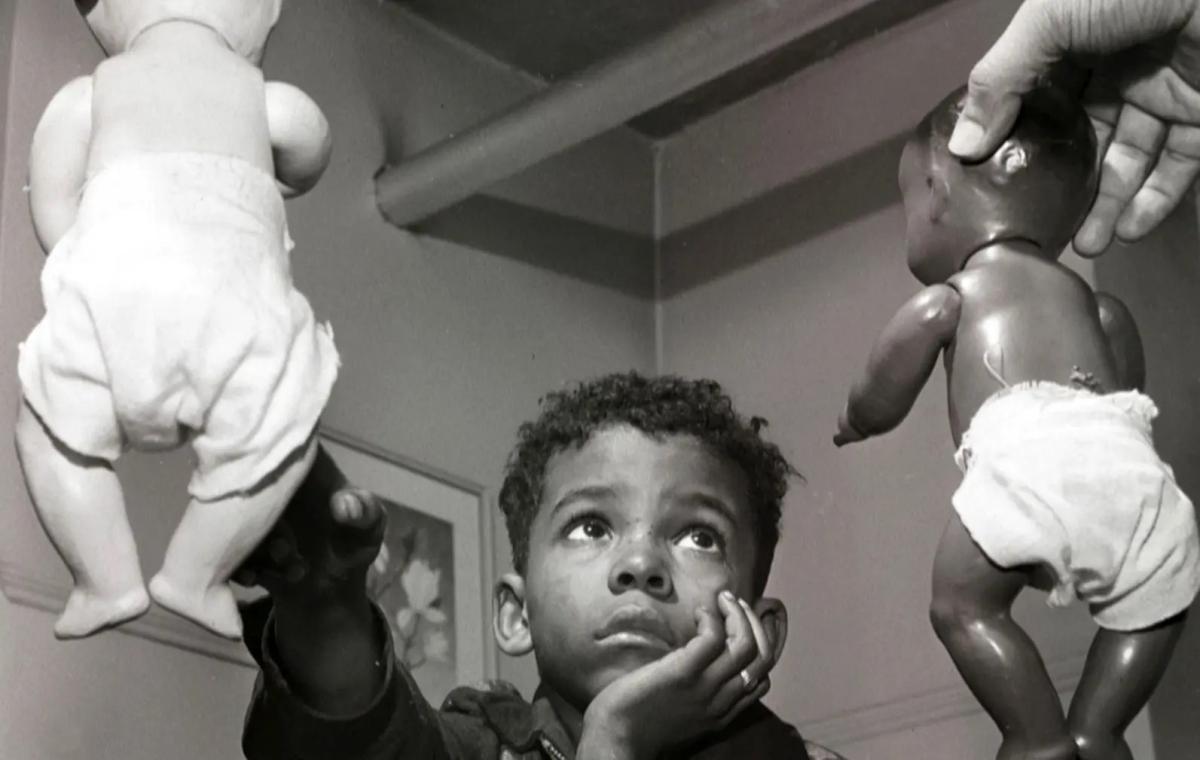 In the decision, the court acknowledged it implicitly in the following passage: “To separate [African-American children] from others of similar age and qualifications solely because of their race generates a feeling of inferiority as to their status in the community that may affect their hearts and minds in a way unlikely ever to be undone.”
In the decision, the court acknowledged it implicitly in the following passage: “To separate [African-American children] from others of similar age and qualifications solely because of their race generates a feeling of inferiority as to their status in the community that may affect their hearts and minds in a way unlikely ever to be undone.”
In an interview for the Civil Rights documentary "Eyes on the Prize," Dr. Kenneth Clark recalled:
“The Dolls Test was an attempt on the part of my wife and me to study the development of the sense of self-esteem in children. We worked with Negro children—I’ll call black children—to see the extent to which their color, their sense of their own race and status, influenced their judgment about themselves, self-esteem. We’ve now—this research, by the way, was done long before we had any notion that the NAACP or that the public officials would be concerned with our results. In fact, we did the study fourteen years before Brown, and the lawyers of the NAACP learned about it and came and asked us if we thought it was relevant to what they were planning to do in terms of the Brown decision cases. And we told them it was up to them to make that decision and we did not do it for litigation. We did it to communicate to our colleagues in psychology the influence of race and color and status on the self-esteem of children.”
You can watch the whole interview with Dr. Clark via an NHPRC-supported project at Washington University in St. Louis .
Meet the Rising Archival Stars!
The NHPRC-supported Archives Leadership Institute at the University of Virginia has shone the spotlight on its 2024 cohort over on Instagram at https://www.instagram.com/aliatvirginia/
 ALI@Virginia 2024 will take place from June 16-22, 2024 in Charlottesville. Cohort members will participate in daylong workshops focusing on strategies for archival leadership, such as ethics of care and mutual aid; responsible stewardship and partnerships; social justice and intercultural relations; and more. The ALI@Virginia experience is grounded in place and landscape, allowing the cohort to explore leadership through the lens of the unique emotional and historical landscape that the University of Virginia offers.
ALI@Virginia 2024 will take place from June 16-22, 2024 in Charlottesville. Cohort members will participate in daylong workshops focusing on strategies for archival leadership, such as ethics of care and mutual aid; responsible stewardship and partnerships; social justice and intercultural relations; and more. The ALI@Virginia experience is grounded in place and landscape, allowing the cohort to explore leadership through the lens of the unique emotional and historical landscape that the University of Virginia offers.
 Subscribe to our mailing list to receive NHPRC News and other special announcements.
Subscribe to our mailing list to receive NHPRC News and other special announcements.
